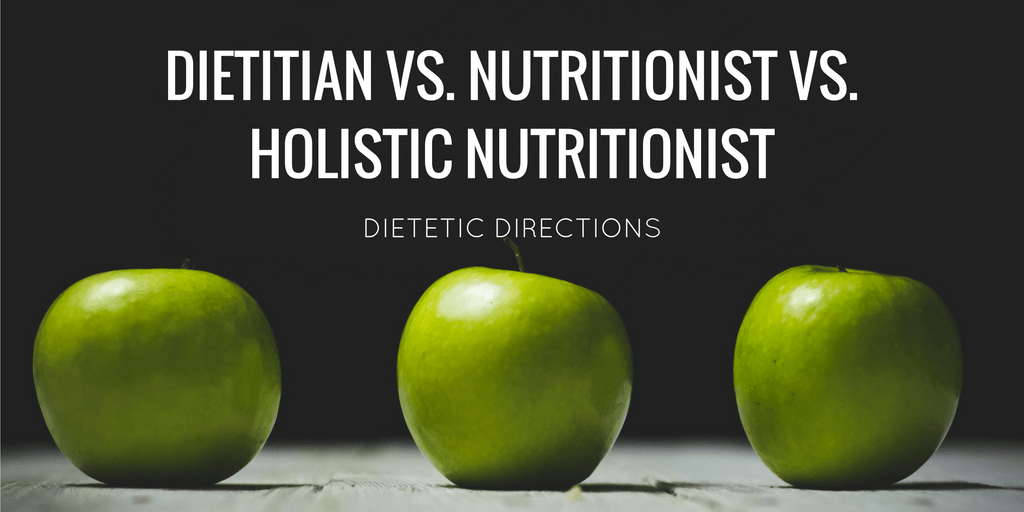
Dietitian vs. Nutritionist vs. Holistic Nutritionist
Have you ever seen a “nutritionist” on the nightly news or Dr. Oz giving advice and asked yourself: Who is this person and what are their qualifications? In a world inundated with nutrition information, we must question the source of information to determine credibility. Today, let’s explore a common question: Are Dietitians and Nutritionists the same thing?
Education
Supervised Training
Work Settings
Dietary Recommendations
Benefit Coverage?
Regulated by a professional governing body?
Call themselves Nutritionist
Call themselves a Dietitian?

Registered Dietitian (RD)
Minimum 4 year Bachelor's degree in food and nutrition.
Completition of minimum 1 year accredited dietetic internship in clinical or community setting.
Must pass Dietetic Registration exam for licensing.
Optional: Masters or PhD degrees, continuing education certificates.
Complete over 1250 hours of supervised training.
Hositals, Community Health Centres, Diabetes Education Centres, Family Health Teams, food service, grocery stores, Long Term Care, Private Practice etc.
Use scientific research, practice-based evidence as well as government approved tools.
Potential for remedial action from the College of Dietitians if making unsubstantiated claims not supported by research.
Registered Dietitian services are covered by many benefit plans.
Covered by OHIP through hospitals, community health centres, diabetes education programs and family health teams.
Yes, professionally regulated by provincial college. Practice in accordance to set laws and standards to protect the public. Yearly quality assurance to ensure up-to-date education, ethical practice and competence.
Yes.
Yes.
Nutritionist
No formal nutrition training required. Title of "nutritionist", "nutrition expert" or "registered nutritionist" is not protected or regulated.
Not mandatory.
Private Practice or group classes.
Unable to work in hospitals because not clinically trained with disease management.
Often more "alternative" treatment plans that do not have to be evidence-based.
Not covered by OHIP.
Not covered by insurance plans.
No.
Yes.
No.

Registered Holistic Nutritionist
Minimum high school education to apply.
Canadian School of Natural Nutrition (CSNN) for 1 - 2 year program and board exam.
Complete 50 hours of practicum.
Private health clinics, gyms, nutritional supplement companies.
Unable to work in hospitals.
Study natural nutrition diploma program and follow a code of ethics.
Not covered by OHIP.
Not covered by most insurance plans.
RHN is a Registered Trademark and NOT a professional designation.
Yes.
No.
* Table is for Ontario only. The term nutritionist is protected by law in other provinces (Alberta, Nova Scotia, Quebec).
Bottom Line:
Be critical of the nutrition information you hear! Question the credibility of information based on the source it is coming from. What is their level of training in nutrition, do they have authority to make these claims? Dietitians are THE ONLY regulated health professional trained to provide nutrition advice.
A Dietitian can call himself or herself a nutritionist (more general term) but a nutritionist CANNOT call himself or herself a Dietitian (unless they meet the eligibility requirements). By looking for the term Registered Dietitian (RD) you are ensuring your nutrition advice is from a person professionally trained in this area and meetings requirements to ensure competence and on-going quality assurance.
Special thanks to Julia Hayden, Ryerson Nutrition student, forher research support.



